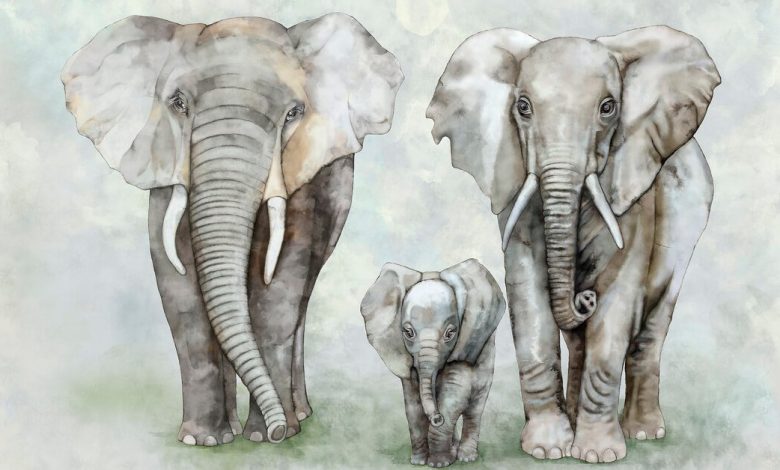
In the vast tapestry of the natural world, the intricate behaviors and communication patterns of animals have long captivated the curiosity of researchers and the general public alike. While it has been widely accepted that the use of names is a uniquely human trait, a groundbreaking study published in the prestigious journal Nature Ecology has shattered this long-held belief, revealing that our pachyderm counterparts, the elephants, also possess the remarkable ability to call one another by name.
The study, conducted over a span of 36 years in the national parks of Kenya, utilized cutting-edge artificial intelligence (AI) technology to analyze the vocalizations of two distinct elephant populations. By applying facial recognition algorithms, the researchers were able to identify a staggering 469 distinct sound patterns, many of which were found to be beyond the range of human hearing. This remarkable discovery not only challenges our understanding of animal communication but also suggests a deeper, more nuanced level of social interaction within elephant communities.
The researchers’ findings indicate that elephants do not always employ their “names” in their vocalizations, but rather reserve this unique form of address for specific situations, such as when elephants are separated or when adult elephants are searching for their calves. This strategic use of nomenclature speaks to the complex cognitive abilities of these intelligent creatures, as they appear to possess the capacity to discern the purpose and context of their own vocal exchanges.
Further evidence of this remarkable skill was observed during the study, when the researchers played recordings of an elephant’s name to the individual in question. The response was immediate and enthusiastic, demonstrating a clear recognition and engagement with the sound. Conversely, no such reaction was noted when the name of another elephant was played, lending credence to the notion that these animals possess a distinct understanding of their own identities and those of their kin.
The parallels between human and elephant social structures and behaviors are indeed striking. Both species are known to live in tight-knit family units, maintaining strong social bonds and engaging in complex forms of communication. The discovery that elephants, like humans, employ the use of names further underscores the remarkable similarities between these two intelligent and highly social species.
As the scientific community continues to unravel the mysteries of the natural world, the revelation that elephants possess the ability to call one another by name serves as a poignant reminder that the depth and complexity of animal cognition and behavior are far greater than we have previously imagined. This groundbreaking research not only challenges our preconceptions but also ignites a renewed sense of wonder and appreciation for the incredible diversity of life that surrounds us, and the unexpected ways in which we may share more in common with our fellow inhabitants of the Earth than we ever could have envisioned.




